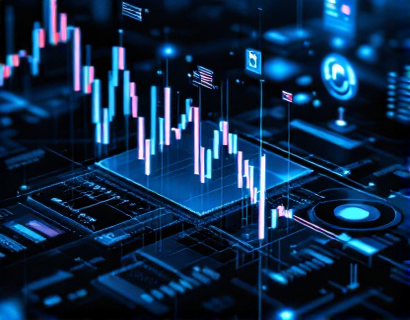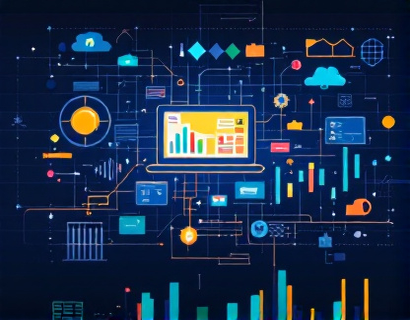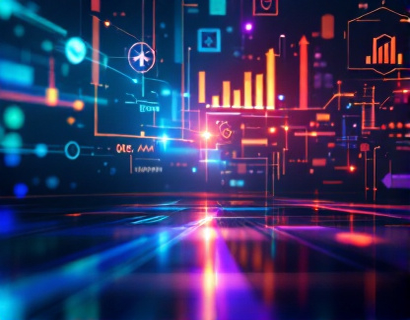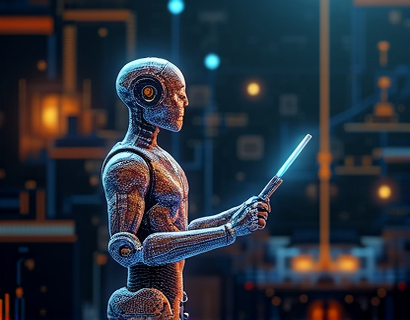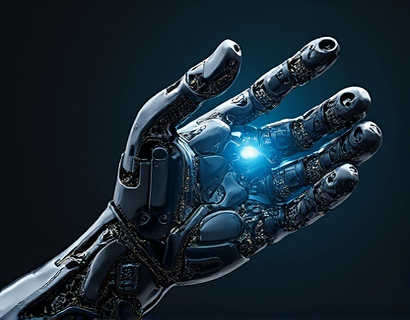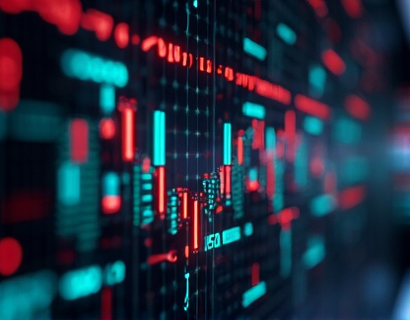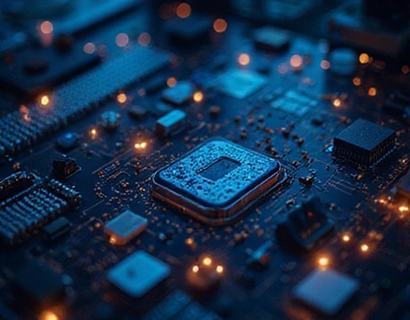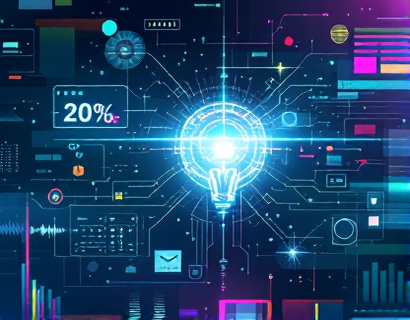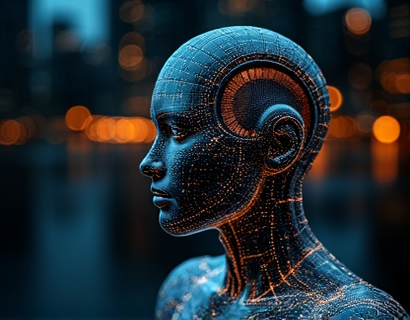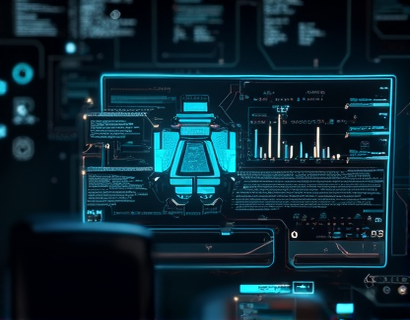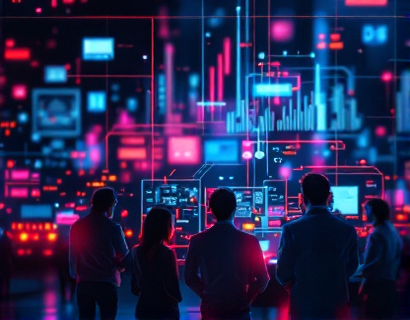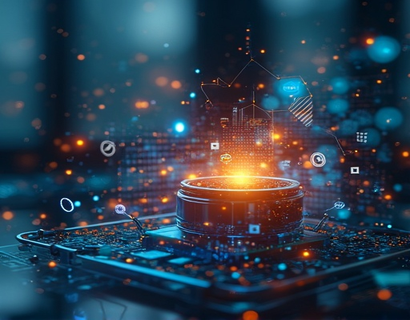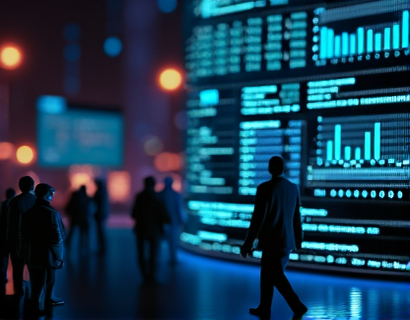Revolutionizing Digital Finance and Tech: The Synergy of AI and Crypto
The integration of artificial intelligence (AI) with cryptocurrency is ushering in a new era of digital finance and technology, promising enhanced user experiences and groundbreaking solutions. This convergence is not merely an evolution but a revolution, redefining how we interact with financial systems and technological services. The potential of AI in the crypto space is vast, offering innovations that streamline processes, enhance security, and create more intuitive user interfaces. This article delves into the transformative impact of this synergy, exploring how smart solutions are reshaping the future of finance and technology.
The Intersection of AI and Cryptocurrency
The intersection of AI and cryptocurrency is a fertile ground for innovation. AI's capabilities in data analysis, pattern recognition, and predictive modeling are invaluable in the crypto domain, where market dynamics are complex and rapidly changing. By leveraging AI, crypto platforms can gain deeper insights into market trends, optimize trading strategies, and improve risk management. This synergy is not just about enhancing existing services but about creating entirely new paradigms in digital finance.
Enhanced User Experiences through AI
One of the most significant benefits of integrating AI with cryptocurrency is the enhancement of user experiences. Traditional crypto platforms often struggle with usability, making them inaccessible to the general public. AI-driven solutions can simplify these platforms, making them more intuitive and user-friendly. For instance, chatbots powered by natural language processing (NLP) can provide 24/7 customer support, answering queries and guiding users through complex transactions with ease. This not only improves user satisfaction but also increases the adoption rate of crypto services.
Personalization is another area where AI shines. By analyzing user behavior and preferences, AI can tailor recommendations and services to individual needs. This level of personalization is particularly valuable in the crypto space, where users have diverse investment goals and risk tolerances. AI can curate customized portfolios, suggest optimal trading times, and even predict market movements based on a user's historical data and behavior. Such tailored experiences foster a stronger connection between users and crypto platforms, encouraging long-term engagement.
Security Enhancements with AI
Security is a paramount concern in the crypto world, and AI offers robust solutions to address these challenges. Traditional security measures, while effective, are often static and can be outsmarted by sophisticated cyber threats. AI, on the other hand, can dynamically adapt to new threats, providing real-time monitoring and anomaly detection. Machine learning algorithms can identify unusual patterns in transaction data, flagging potential fraud or malicious activity before it causes harm. This proactive approach to security not only protects users' assets but also builds trust in crypto platforms.
Furthermore, AI can enhance the security of private keys and wallet management. Biometric authentication, powered by AI, offers a more secure and convenient way to access crypto assets. Face recognition, fingerprint scanning, and voice recognition are examples of biometric technologies that, when integrated with AI, can significantly reduce the risk of unauthorized access. This level of security is crucial for widespread adoption and the growth of the crypto ecosystem.
Smart Contracts and AI: A Powerful Combination
Smart contracts, self-executing contracts with the terms directly written into code, are a cornerstone of blockchain technology. When combined with AI, smart contracts become even more powerful and versatile. AI can automate the execution of complex conditions within smart contracts, ensuring that all predefined criteria are met before a transaction is completed. This automation reduces the need for intermediaries, lowering costs and increasing efficiency. For example, in supply chain management, AI-driven smart contracts can automatically trigger payments once goods are delivered and verified, streamlining the entire process.
AI can also enhance the reliability and trustworthiness of smart contracts. By analyzing historical data and identifying potential vulnerabilities, AI can help developers create more robust and secure smart contract code. This reduces the risk of bugs and exploits, which are common concerns in the current implementation of smart contracts. The synergy between AI and smart contracts is poised to revolutionize various industries, from finance and real estate to healthcare and governance.
Decentralized Finance (DeFi) and AI
Decentralized Finance (DeFi) is an emerging sector that is rapidly gaining traction, and AI is playing a pivotal role in its development. DeFi platforms aim to provide financial services without traditional intermediaries, leveraging blockchain technology to create transparent, accessible, and secure systems. AI enhances DeFi by offering advanced analytics, risk assessment, and automated trading tools. These tools enable users to make more informed decisions and optimize their investments with greater precision.
One of the key applications of AI in DeFi is the creation of autonomous financial systems. These systems use AI to manage assets, execute trades, and handle risk management without human intervention. This not only increases efficiency but also opens up new possibilities for decentralized governance and community-driven decision-making. AI-driven DeFi platforms can adapt to market conditions in real-time, providing users with dynamic and responsive financial solutions.
Challenges and Considerations
While the integration of AI and cryptocurrency offers numerous benefits, it also presents several challenges that must be addressed. One of the primary concerns is the regulatory landscape. The crypto space is still largely unregulated, and the introduction of AI adds another layer of complexity. Regulators are grappling with how to oversee these new technologies, ensuring they are used responsibly and ethically. Clear guidelines and frameworks are essential to foster innovation while protecting users and maintaining market integrity.
Another challenge is the technical complexity involved in integrating AI with blockchain and crypto systems. Developing scalable and efficient AI models that can operate on decentralized networks requires significant expertise and resources. Additionally, the computational power required for AI processes can be substantial, raising concerns about energy consumption and environmental impact. Addressing these technical and environmental challenges is crucial for the sustainable growth of AI-enhanced crypto solutions.
Future Prospects and Innovations
The future of AI and cryptocurrency is bright, with numerous innovations on the horizon. One exciting development is the integration of AI with quantum computing, which promises to solve complex problems that are currently infeasible for classical computers. Quantum AI could revolutionize crypto by enhancing cryptographic algorithms, optimizing blockchain scalability, and solving optimization problems in real-time. This synergy could lead to breakthroughs in areas such as secure communication, advanced analytics, and decentralized applications.
Another area of innovation is the development of AI-powered crypto assistants. These virtual assistants can provide users with comprehensive financial advice, monitor market trends, and execute trades based on AI-generated strategies. By combining the strengths of AI and human intuition, these assistants can offer a new level of service that is both efficient and personalized. The potential for AI to democratize access to sophisticated financial tools is immense, making high-quality investment strategies available to a broader audience.
Furthermore, the rise of AI-driven crypto exchanges is set to transform the trading landscape. These exchanges use AI to match buyers and sellers more efficiently, reduce slippage, and provide real-time market insights. AI can also enhance order book management, ensuring fair and transparent trading practices. As these platforms become more prevalent, they will likely become the go-to destinations for crypto traders seeking a seamless and intelligent trading experience.
Conclusion
The convergence of AI and cryptocurrency is a game-changer for the digital finance and technology sectors. By leveraging AI's advanced capabilities, the crypto space can achieve unprecedented levels of efficiency, security, and user engagement. The future holds immense potential for innovative solutions that not only enhance existing services but also create entirely new paradigms in finance and technology. As this synergy continues to evolve, it is essential for stakeholders to embrace these changes, address the associated challenges, and harness the full potential of AI and cryptocurrency to build a more inclusive and advanced digital world.




